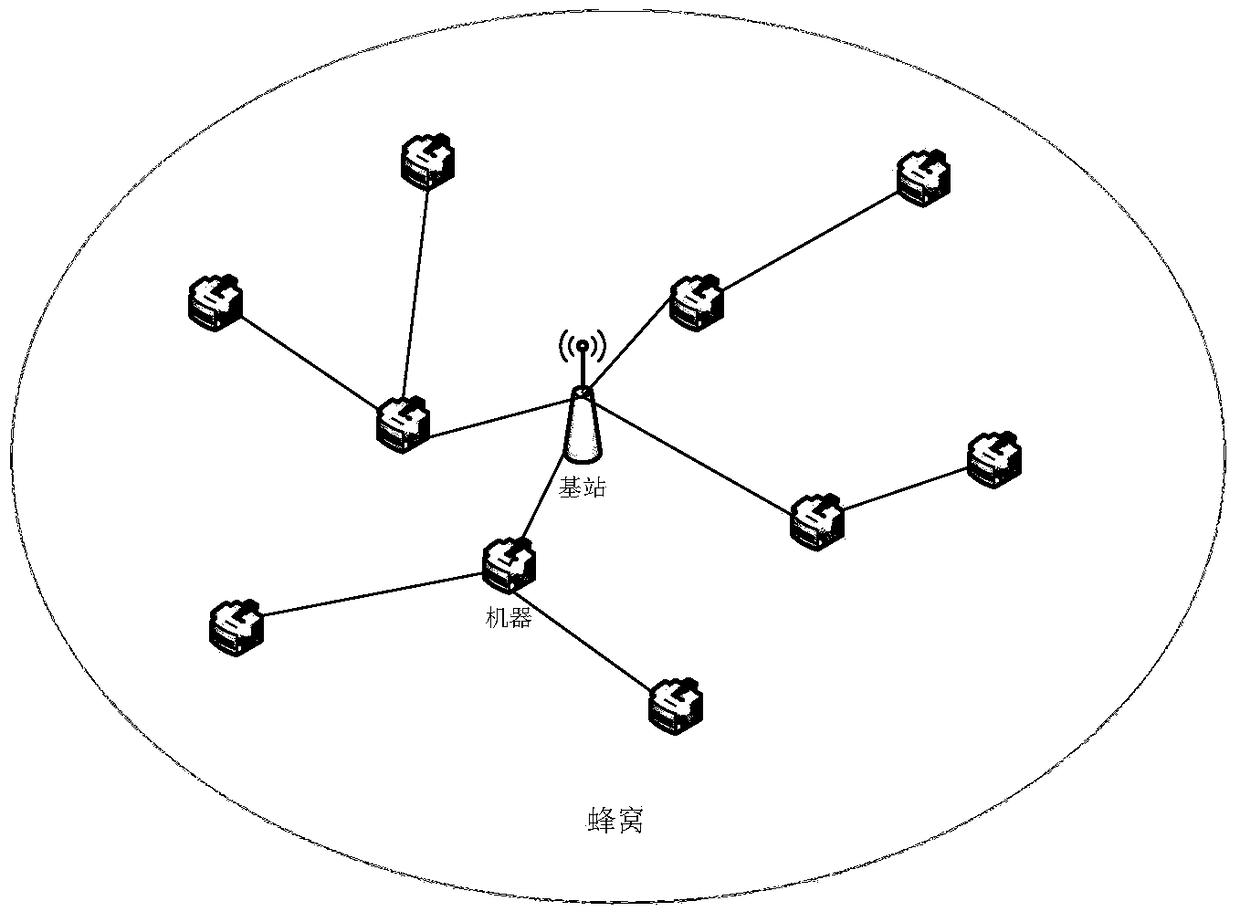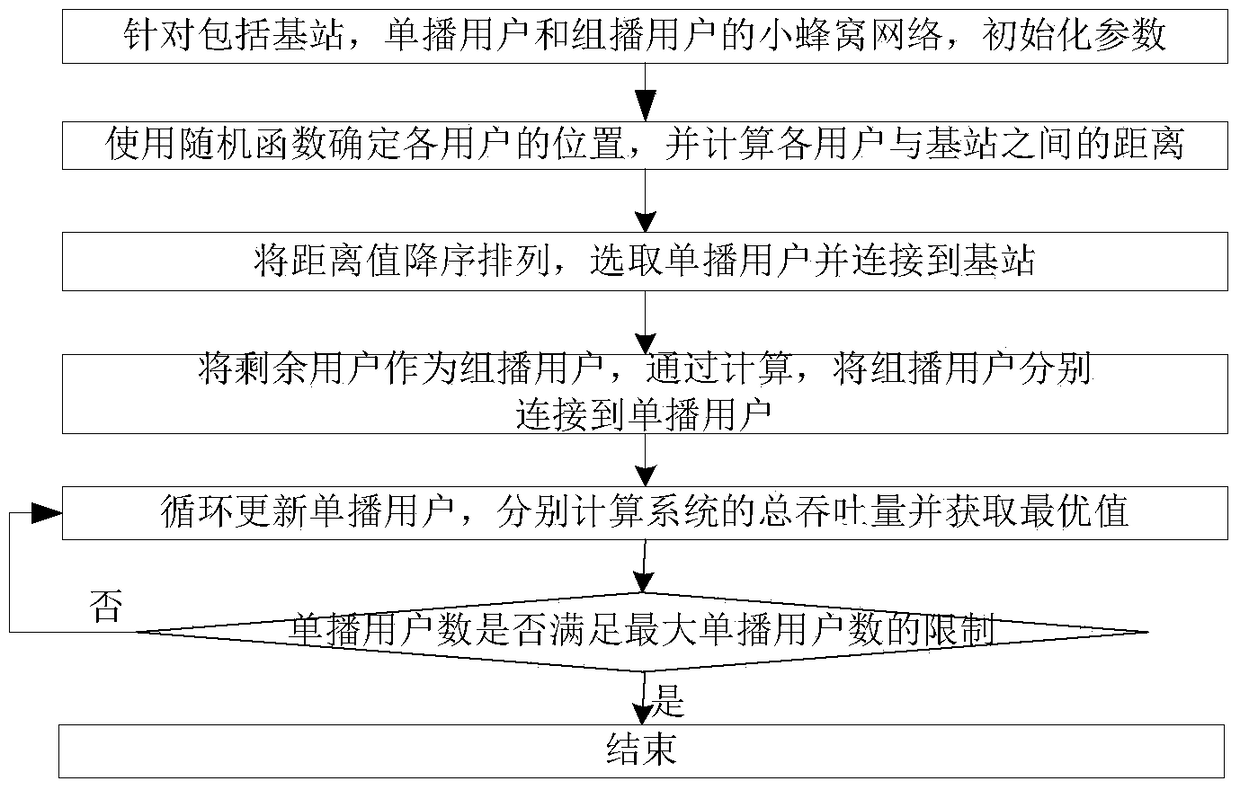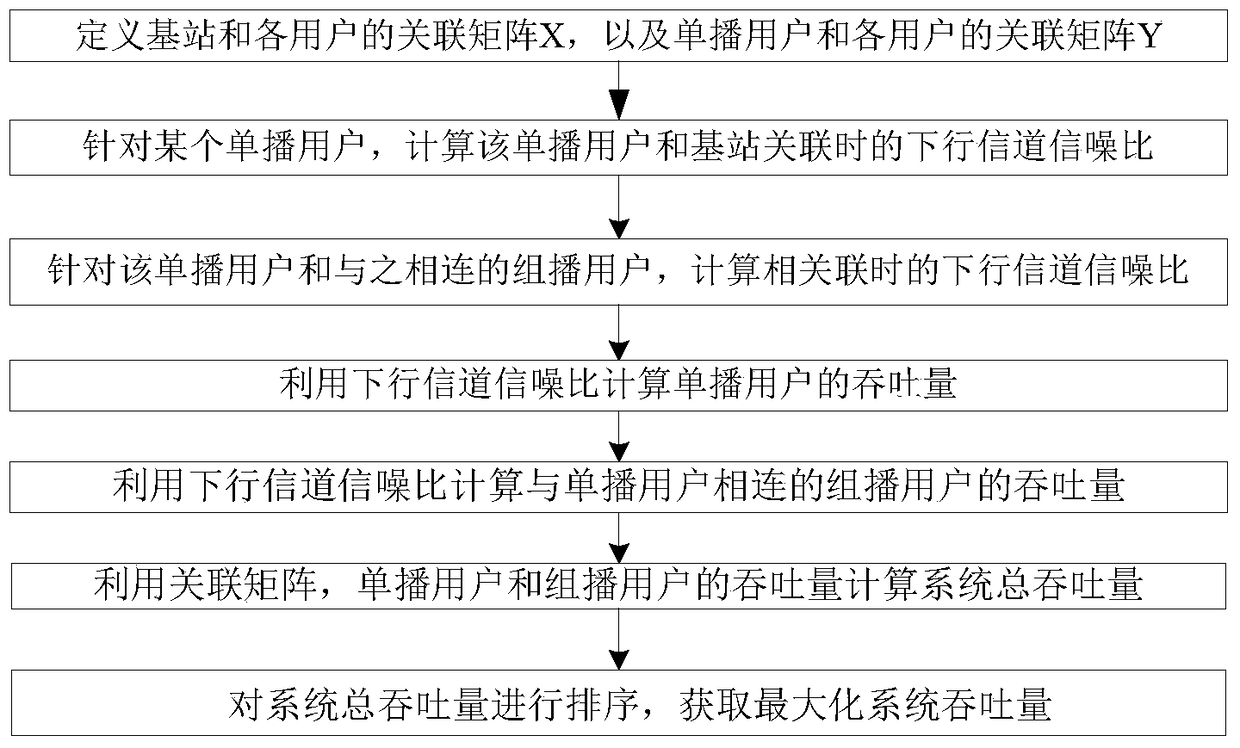A Resource Allocation Method Based on Joint Unicast and Multicast Mechanism
A resource allocation and unicast technology, applied in the field of communication, can solve the problem of not being able to guarantee user system QoS requirements and system throughput at the same time, and achieve the effect of saving computing time, fewer algorithm parameters, and simple implementation
- Summary
- Abstract
- Description
- Claims
- Application Information
AI Technical Summary
Problems solved by technology
Method used
Image
Examples
specific Embodiment
[0120] The simulation scenario is set to a common simulation network configuration of a small cell network. A base station is arranged in the center of the cell, and M2M devices are randomly distributed in a radius circle of 250 meters around it. Assuming that orthogonal channels are used for resource allocation between M2M devices, there is no interference between different users, and a large-scale fading channel is considered.
[0121] The detailed simulation parameters are shown in Table 5-1:
[0122] Table 5-1 Simulation parameter settings
[0123] parameters
value
bandwidth
10MHz
noise power
-174dBm / Hz
The transmission power of the base station
26dBm
Unicast user transmit power
14dBm
[0124] Unicast User UE i and the channel power gain g between base station B b,i for:
[0125]
[0126] P loss(macro-ue) UE i and the path loss of base station B;
[0127] P loss(macro-ue) =128.1+37.6log 10 d (km) ...
PUM
 Login to View More
Login to View More Abstract
Description
Claims
Application Information
 Login to View More
Login to View More - R&D
- Intellectual Property
- Life Sciences
- Materials
- Tech Scout
- Unparalleled Data Quality
- Higher Quality Content
- 60% Fewer Hallucinations
Browse by: Latest US Patents, China's latest patents, Technical Efficacy Thesaurus, Application Domain, Technology Topic, Popular Technical Reports.
© 2025 PatSnap. All rights reserved.Legal|Privacy policy|Modern Slavery Act Transparency Statement|Sitemap|About US| Contact US: help@patsnap.com



